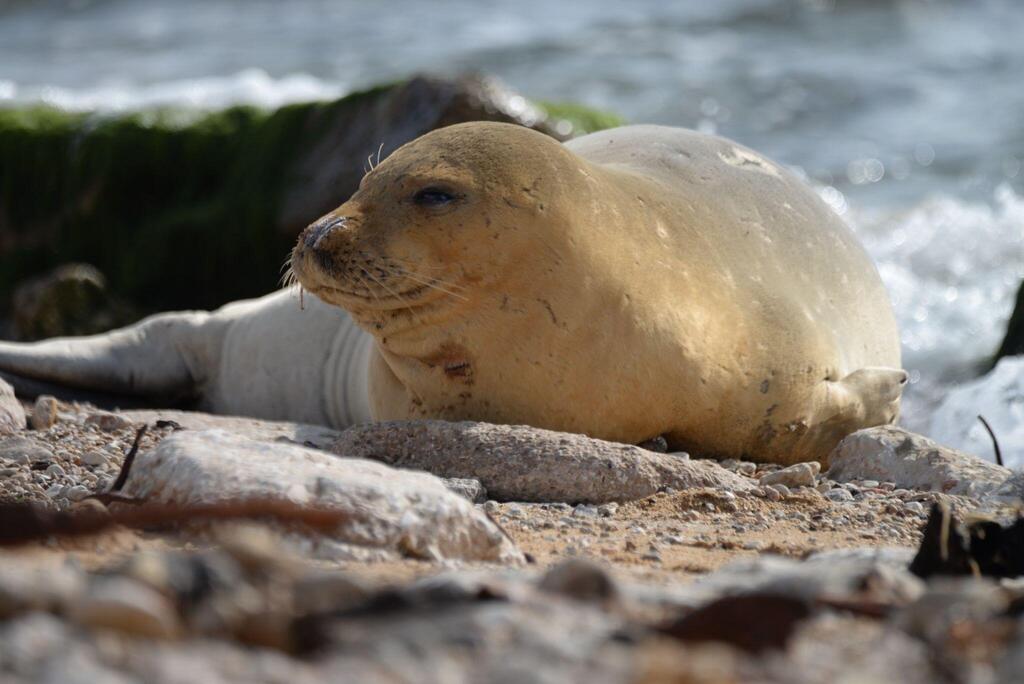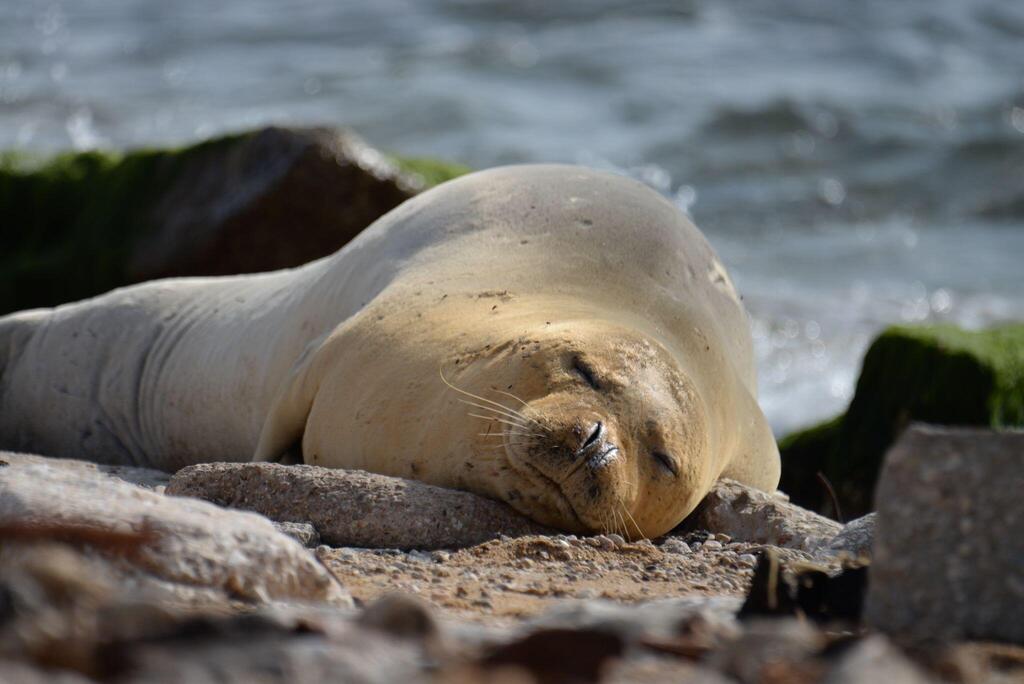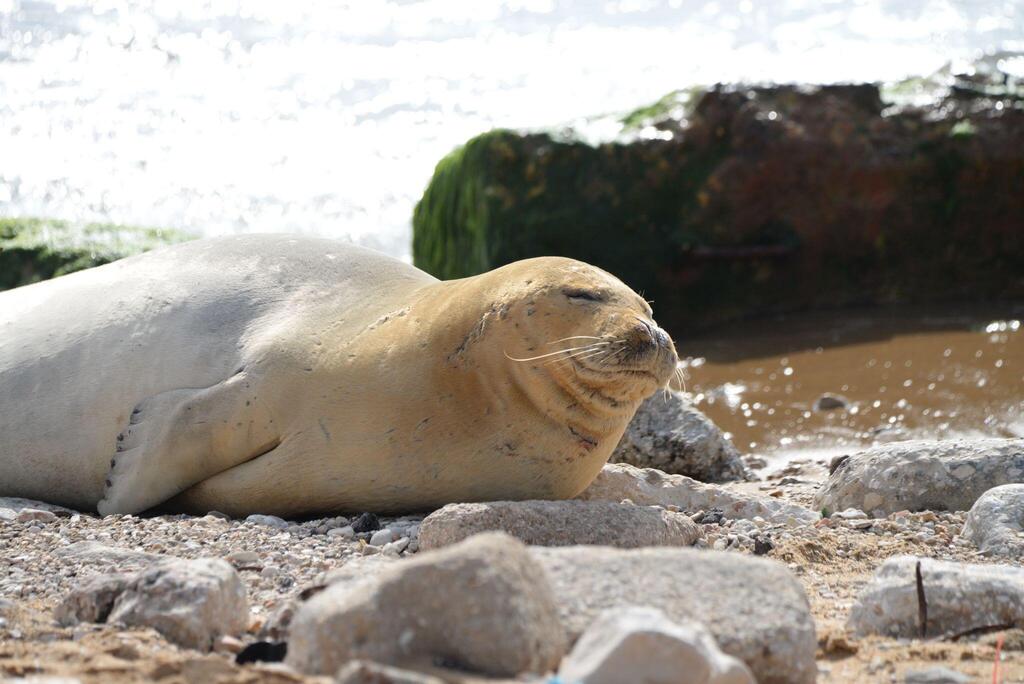A Mediterranean monk seal sighted on a central Israel coast
(Video: Guy Levian, Nature and Parks Authority )
Bathers got a rare and particularly exciting sight on Friday on a beach in central Israel: A Mediterranean monk seal lounging around on the shore and basking in the warmth of the sun.
Read More:
The female seal, estimated to be around 3-5 years old, did not exhibit any signs of distress.
3 View gallery


A Mediterranean monk seal sighted on a central Israel coast
(Photo: Guy Levian, Nature and Parks Authority)
The first and last time a seal was sighted on an Israeli beach was in 2010 when a monk seal was spotted in the Herzliya Marina after an absence of about half a century. Since then, seals have only been sighted offshore.
Avi Benson, who reported the sighting, shared his account: "I was riding my bike when I thought I saw a dolphin. As I got closer, I realized it was a seal that was coming in and out of the water. I first thought it maybe was injured until it reached the shore to rest. I contacted the police, and from there, they forwarded me to the Nature and Parks Authority who arrived quickly."
"We are safeguarding the seal until it returns to the sea to prevent people from approaching and disturbing it. It is a protected marine mammal that must not be harmed," said Guy Levian, the head of the Marine Unit at the Nature and Parks Authority. "The public is kindly requested not to approach and allow the seal to safely return to the sea after its done resting."
Earlier this year, an Israeli environmentalist group published a survey of the country's coasts it examined that could serve as potential habitats for the rare Mediterranean monk seals that were once common in the region.
The survey was conducted by Dr. Mia Elasar of the marine environmentalist group Delphis; Dr. Luigi Bundone, a researcher of Mediterranean monk seals at the European marine environmentalist group Archipelagos; and Dr. Aviad Scheinin, head of the Dolphin and Sea Center at Delphis and head of the predator-prey department at the Morris Kahn Marine Research Station at the University of Haifa.
The researchers concluded that there aren’t enough suitable caves along the shores to serve as a habitat for the seals, caused by rock collapses, floods caused by rising sea levels, and an increase in tourism.
The survey stated that animals arriving at Israeli shores will find very few caves suitable for a short rest, but not for prolonged living. In order to encourage the seals to establish permanent populations in the area and support the seal population, the survey recommended the restoration of two existing caves.
The survey also recommended creating artificial caves that will suit the needs of the animals and allow them to stay longer in the area.
The Mediterranean monk seal, of the earless seal family, is one of the rarest mammals in the world and is in grave danger of extinction. The seals live only in the Mediterranean Sea. It measures about 2.5 meters in length and weighs about 350 kg.
Before the establishment of Israel, sightings of these seals were more common. Reports of individual sightings were documented from the 1920s through 1958. In 2010, reports of monk seals began to surface on beaches where they hadn’t been observed for several decades, such as in Syria, Lebanon, and Israel.
Today, the population of Mediterranean monk seals is estimated at around 900 individuals, with approximately 400 of them living along the coasts of Greece, Cyprus, and Turkey.





